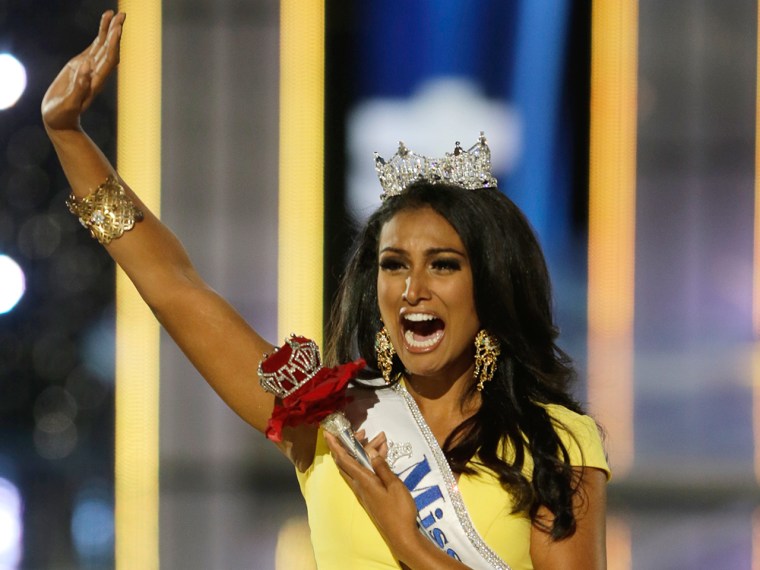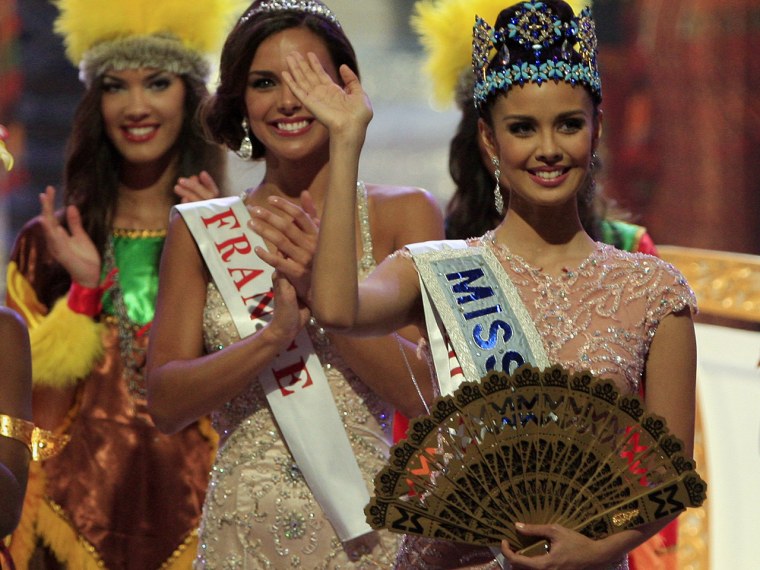
Beauty pageants are known less for political controversy than scripted displays of female grace, intelligence, and yes, good looks.
But politics have played a surprising role in two high-profile competitions this month. On Saturday, Miss World anointed a new winner in Bali, where the pageant was relocated following protests by a group known as the Islamic Defenders Front, which argued the competition violated Islamic teachings. (Despite initial threats to disrupt the event, police said no rallies were held on the actual day.)
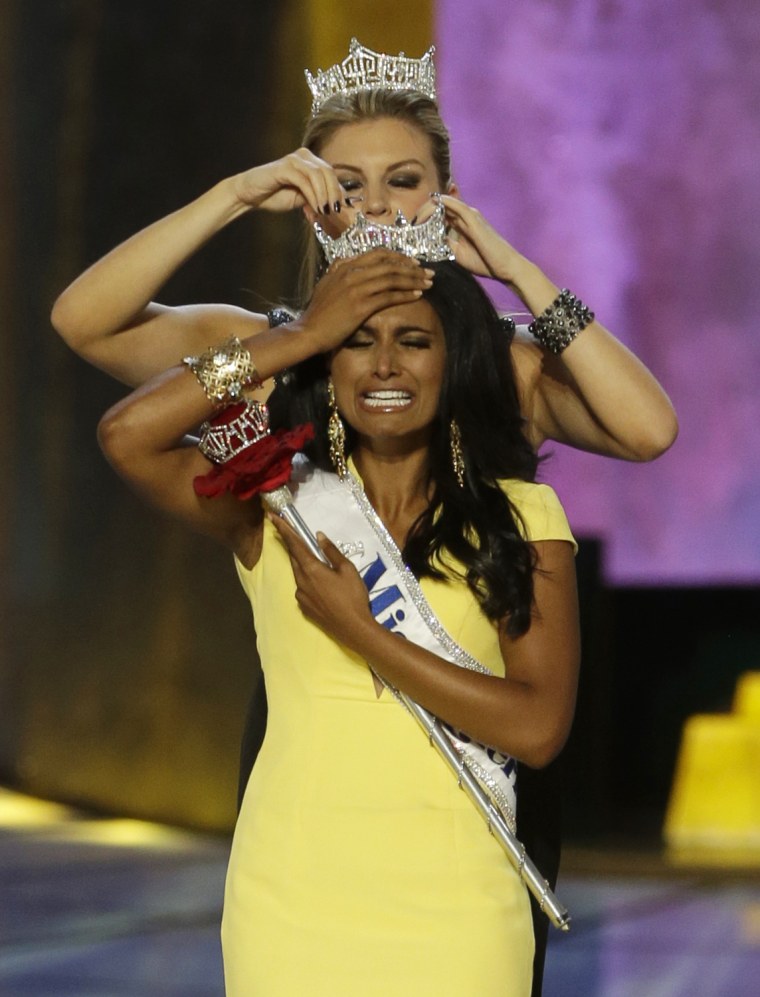
And a few weeks earlier in the U.S., the crowning of Nina Davuluri as the first-ever Miss America of Indian heritage sparked racist comments when observers on social media remarked on her ethnic background. One Twitter user wrote, “And the Arab wins Miss America. Classic.” Another said, “Miss America? You mean Miss 7-11.” Several stories on racism and American culture poured forth.
Hilary Levey Friedman, a sociologist who is writing a book about pageants, told TODAY.com that while beauty pageants may seem to draw more attention these days for their political undertones, the events have always reflected timely beliefs and themes. The sashes that contestants wear, for example, were adapted from those donned by suffragettes in the early 20th century; Miss America launched in 1921.
In 1968, hundreds of feminists protested the event, criticizing its message about beauty and female identity. “In some sense, it’s always been political because that’s a political issue,” Levey Friedman says of societal expectations for what makes an ideal woman.
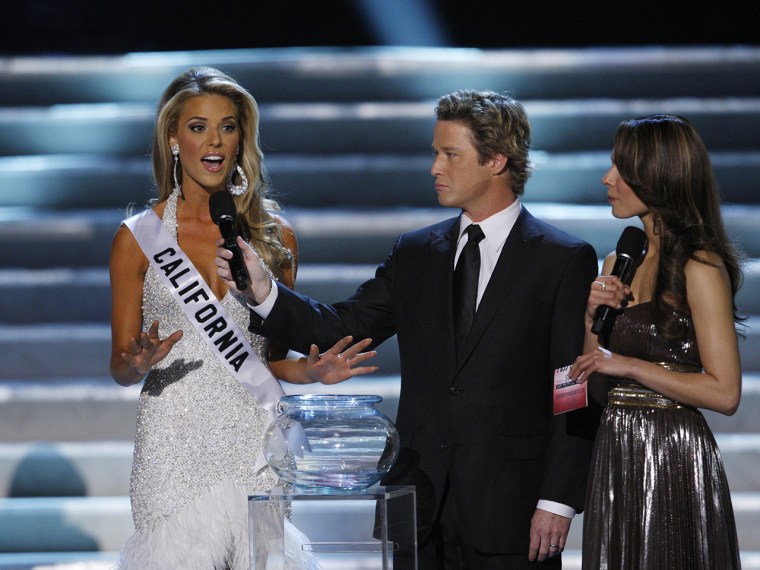
By the late 1960s, contestants were regularly quizzed about current affairs and politics. Now, we can rattle off a list of hopeful winners who lived or died by their responses. In 2009, competing in the Miss USA pageant, Carrie Prejean answered a question about gay marriage by saying that she believed only in marriage between a man and a woman.
“I think it’s great that Americans are able to chose one or the other,” said Prejean, who was Miss California at the time. “In my country and in my family, I think that marriage should be between a man or a woman — no offense to anybody out there.”
Prejean’s answer became a lightning rod for public debate, but she did finish the competition as the first-runner up.
As for Davuluri, she told TODAY.com that she was prepared for her heritage to become the subject of cruel commentary. “It was an unfortunate situation, but it was something I had sadly experienced when I won the title of Miss New York,” she said. The remarks weren’t all critical, though: “For every one of the negative tweets, I received hundreds of positive words of encouragement and support," she noted.
The difference between pageant controversy now and 50 years ago, said Levey Friedman, is the 24-hour news cycle and saturation of social media services, that allow people to broadcast their opinions in real time.
“We live in an era where these things matter so much,” she said. “The more extreme things are going to get more attention.”
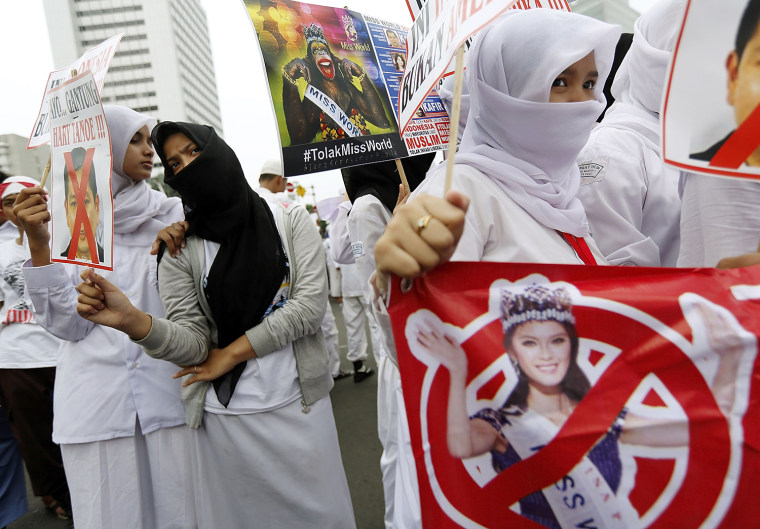
Sam Haskell, chairman and CEO of Miss America, agrees. A longtime entertainment executive, Haskell judged the pageant in the 1980s. “I was asking questions about politics then,” he told TODAY.com. Social media, he added, puts more of a “spotlight” on any kind of controversy involving politics or current affairs.
He said the pageant expects its contestants to be well-informed and prepared to discuss anything from Syria to same-sex marriage to politics in their home state. These conversations happen off-screen in interviews with judges that the TV audience doesn’t get to watch.
Those exchanges, Haskell said, often decide the likely winner well before she takes the stage in an evening gown or bathing suit. “Miss America is always expected to have an opinion,” he said. “We do not have a cookie-cutter Miss America.”
Haskell also noted that whenever the pageant crowns a new winner, organizers receive complaints that the new Miss America doesn’t live up to someone else’s vision — she’s too short or too white or not white enough or too blond, and the list goes on, he said.
“Every Miss America brings with her relationships and ideals and opinions and different races and religions,” he said. “We surround her with support and let her be who she is.”
For Davuluri, the hurtful comments that drew her into a public debate about racism became just another opportunity to promote her platform on educating children about diversity.
The message, she says, is that it’s “important to respect everyone’s beliefs, backgrounds, and heritage.”
Not a bad reminder for audiences watching the next high-profile beauty pageant.
The Associated Press contributed to this story.
